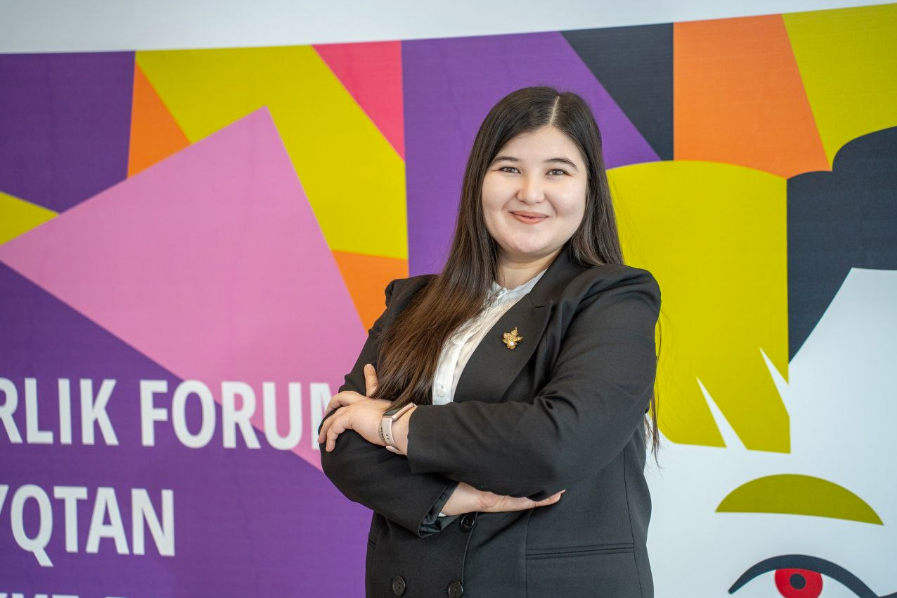Insufficient access to quality healthcare, social support, and infrastructure poses significant obstacles for people with disabilities in Central Asia. This issue is particularly acute in Karakalpakstan, an autonomous republic within Uzbekistan. For years, children with disabilities living in Nukus, the capital of Karakalpakstan, have had limited access to rehabilitation facilities. Thanks to a USAID-funded Social Innovation in Central Asia (SICA) program grant, Children and Families Support Association launched free, tailored rehabilitation programs for more than 60 children with musculoskeletal disorders residing in Nukus.
Sholpan Asanova and Aizhamal Uzakova are the driving forces behind the Karakalpakstan branch of the Association for the Support of Children and Families. The organization focuses on three crucial areas: healthcare, social protection, and education for families, children, and women from vulnerable groups. In recent years, they have increasingly prioritized helping integrate children with disabilities into society. “Since no specialized centers catered to this target group, parents of children with disabilities turned to us for support," Sholpan shares. One day, a poignant encounter profoundly transformed their vision for the Association's development. "A father of a child with cerebral palsy arrived at our center in tears," recalls Aizhamal. "On Children's Day [June 1 in Uzbekistan], he brought his child to a public event, and another attendee made hurtful comments." Moved by the man's emotional account, Aizhamal and Sholpan realized the pressing need for a place that offers legal, psychological, and therapeutic support to families with children with disabilities. In 2022, the Association secured a USAID-backed Institutional Development Grant (IDG) through Eurasia Foundation's SICA program. The grant enabled them to hire an experienced rehabilitation specialist, acquire advanced therapy equipment, and significantly expand their facilities. "Thanks to the grant, we were able to procure essential equipment like an ultrasound therapy device, a portable magnetic field, a dry pool, an oxygen concentrator, parallel handrails with suspension, and walkers, all of which play a crucial role in musculoskeletal disorder therapy," Sholpan explains. "Presently, there are 123 children living with cerebral palsy in Nukus, and this grant has enabled us to offer tailored massage services, magnetic therapy, and physiotherapy to almost half of this group." As part of the project, the team also participated in SICA’s Institutional Development Program, which proved instrumental in helping them redefine the organization's goals, hone their proposal writing skills, and learn valuable fundraising techniques.
Perdegul Ganiyeva, a beneficiary of the children's center, discovered the opportunity for free massage sessions in December 2022 and wasted no time in enrolling. Her son, Azizbar, who has cerebral palsy, is currently undergoing his third treatment course with the Association, which includes massages, therapeutic physical exercises, and magnetic therapy. "My son's demeanor has noticeably improved and he can finally enjoy restful sleep," shares Perdegul. "I am immensely grateful to the Association for offering these courses." In addition, the team has successfully established a collaboration with the Ministry of Health, which now refers children from nearby clinics to the center for rehabilitation. Aizhamal elaborates: “Within Uzbekistan's public healthcare support system, children with disabilities are granted the opportunity for comprehensive treatment and rehabilitation procedures in hospitals twice a year. However, for children with musculoskeletal disorders that require ongoing treatment, this falls short, as they need professional massages and therapeutic exercises every three months. Centers like ours that provide continuous treatment are not only beneficial for the children but also prove advantageous for the government [as they ease the burden on state medical systems].” Currently, the team plays an active role in the Commission on Minors' Affairs and strives to engage in constructive dialogues with government bodies to advocate for the rights of children with disabilities. “Children do not inherently segregate themselves; it is the adults who perpetuate such attitudes,” Sholpan emphasizes. “One of our paramount objectives is to foster an inclusive environment that guarantees equal rights for children with disabilities.”

Address:
Almaty, Kazakhstan
609 Seifullin St
"Forum" Business Center
Thank you!